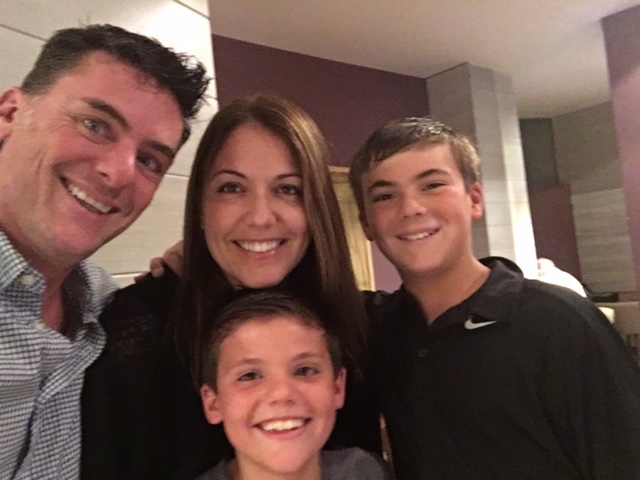Most parents struggle with feelings of guilt over thoughts they are not doing a good enough job for their kids. One study from the UK found parents feel guilty at least 23 times a week!
From feeling guilty for putting our work before our kids to feeling guilty for giving in too easily to their demands because we’re exhausted, these feelings are hard to escape. When they boil over and we yell at our kids, we end up feeling even more guilty.
Yelling at my children makes me feel like the worst mom on the planet. Energy builds. I snap, raise my voice, and immediately I feel ashamed. Our connection to each other is lost and I pine to find my way back to myself and to them.
That’s why I enlisted my little guy’s help.
At the tender age of 4, Tyler had a far greater ability to see when I was about to lose her cool than I did! So I asked him if he would let me know whenever he noticed me becoming upset, suggesting he tell me I needed to stop and take a breath.
We made an agreement that whenever he uttered the words “Breathe, Momma” I would immediately stop. There would be no overriding what he was asking, no matter how powerfully the tide of emotion rose within me.
Hearing his little voice remind me to “Breathe, Momma” was precisely what I needed to hear. This simple practice of getting Tyler to help me check in with myself became a powerful tool for change. By stopping me in my tracks before I raised my voice, Tyler enabled me to begin to notice what was happening inside me that triggered my outbursts.
This is an example of how mindfulness can help us become more self-aware and increase our self-control and connection with our families.
The word mindfulness is often misused in popular culture, so I think it’s important to understand what it does not mean. Being mindful does not mean that you are calm all the time. It’s just as easy to be aware of your anxiety, anger or fear as it is to be all Zen-like and relaxed.
I define mindfulness as simply compassionate, non-judgmental awareness of our inner and outer moment-to-moment experience. As such, mindfulness encompasses all of our experiences — the good and the bad, the anxious moments as well as the calm ones.
Here are some steps you can take to help you become more mindful in those messy moments of parental angst:
1. Pay Attention to Your Body: When you feel under stress, take a deep breath, exhale slowly and focus on what your body is feeling. You might notice how you clench your jaw, or how your throat or muscles feel tight, or feel your heart pounding. Noticing and naming the tension you feel may not make it go away, but it puts you back in control and allows you to:
2. Interrupt Your Pattern: Staying aware of your feelings can be hard. Maybe, like me, you need to enlist the help of your child or your spouse to gently tell you when you need to take a breather. It helps if you start taking intentional breaths on a regular basis throughout your day. Repetition is the key. Focus as you inhale, as well as when you exhale. Another idea: join me in welcoming frustration. Next time you are annoyed, smile if you can and say, “Oh, there you are again frustration! What are you here to teach me today?” I’ve developed quite a relationship with my anger and frustration, however, I have learned to avoid letting them lead whenever possible.
3. You Still Blow It. Now What? Have some compassion for yourself. Instead of feeling forever horrible about needing to apologize over and over again, I took the step of accepting myself as someone who yelled sometimes. In this acceptance of reality, real change began.
For me, acceptance meant that whenever I yelled, I did my best to pause and take a breath as soon as possible while also getting a grip on my tendency to feel awful about myself. I practiced not thinking of myself as a “bad mother.”
I don’t wish to imply that I let myself off the hook when my energy manifested itself in bad behavior. Accepting myself, including my crummy behavior, meant that these things were no longer moral issues, but a chance for me to learn to respond more productively.
When you do this, you may be surprised by how your family responds. It takes courage and daring to embrace your icky parts. One awesome side effect is your children will learn to do the same. For a child to grow up in a household where everyone is willing to embrace these baffling parts of themselves is an incredible gift.











